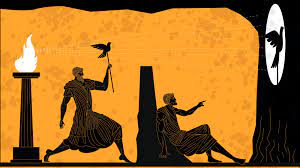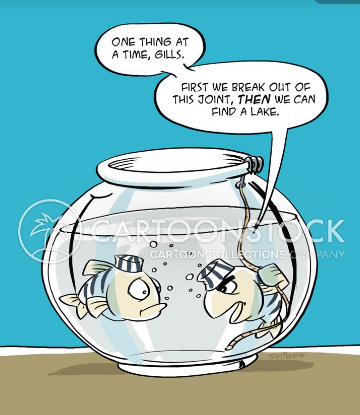
When researching quotations to find their origins, one often encounters many obstacles. Whilst it should, in theory, be easy to say, ‘ah, who said ‘…’?’, search it and find, ‘ah, it was Plato’, the answers one often gets is far removed from the original source. Whilst some quotations are miss-attributed, for example the quotation which is alleged to be Plato quoting Socrates saying, in The Symposium, ‘sorry I was late, I was playing Pokémon Go and saw a Pikachu which was hard to catch’, is clearly false for one thing we know about Socrates was that he never apologised for being late. When searching for quotations, one often sees them repeated by people who fit them into a business model, i.e. a hustle. The quotes are attributed to people saying ‘If you want success, this is how you Hussle, walk out of the cave and see the light, the light of the pots of gold!’, which is clearly a bastardised form of Plato’s myth in The Republic about one only seeing the shadows of things on a cave wall, and to see the truth, one must leave the cave and step out into reality.
One aspect of the quotations which is misused in many reframings of the quotation (although the person doing the reframing often seems unaware of their reframing) is that the essence of the quote is lost. A quote by someone such as Seneca, the Stoic Roman philosopher, was originally said to talk about the transient nature of life and how little control we have over it. The Stoics (Greek and Roman) had a central motif and that motif was that in order to live, one must be aware of one’s limitations and accept them. This, they argue, would then allow one to live a full life. Whilst some of it is problematic, in my opinion, for some of the greatest moments of life, are completely out of our control, such as falling in love (although one must choose to do so at a certain point), the central premise is that To Be (to use Hamlet’s meaning as in to exist) one must be able to let go of what one cannot control to become realised as a person. However, in the interpretations that one finds on the internet, and in books, is that this ‘acceptance’ of one’s limitations is actually a way to gain more. Instead of it being a passive acceptance so that one can move forward, it is seen as a cold-hearted key to obtaining material wealth. Whilst the Stoics saw the goal as becoming human (by removing, arguably, that which makes us human- emotion), the modern interpretations see it as a way of amassing personal glory. By dismissing those who cannot help us achieve what we want, we are no longer held back by simple things such as family, hope, dreams, morality etc. It is seen as a way of finding personal value from external sources.
Whilst this may seem absurd, this interpretation is more common than that of the original meanings of the quotations. Why is this? Well, it depends very much on how one defines one’s self. If one, such as the Stoics, generally define their self from within, then this philosophy is about inner growth, about becoming who one is. Yes, this is problematic in that one can only grow within when one is challenged from without, however, it often leads to personal growth as one transcends where one is and starts towards who one will become. For many of those who misuse these quotes, their value only stands from without. For them, they can only see their self as a successful human by external markers- social standing, wealth, career, or in other words, having what other people do not. Whilst the Stoics would insist that you can only be greater in comparison to who you once were, the modern quoters, the ‘hustlers’ as they call themselves, insist that you can only become greater in comparison to what you have and what others do not. This is superficial and completely ephemeral in that it has no substance and can be taken away from you at a whim. In other words, is not real growth, it is not real value, it is merely a shadow dancing on the wall of a cave.
Erich Fromm, who regular readers will be sick of by now, wrote a treatise on life called To Have or to Be? in which he asks is it more important to have possessions, exist externally, or to become a person, to exist internally?
Having not read the book, yet, and having reached the end of my allotted time, I can’t delve more into this and so I merely reference it as a rhetorical question for you. Which is better? To have or to be?
‘till next time




